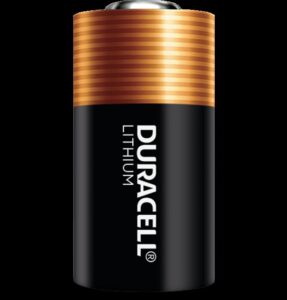Do solar lights need batteries? The answer is quite simple: no, they don’t! Solar lights are a fantastic innovation that harnesses the power of the sun to illuminate our surroundings, without the need for traditional batteries. These clever devices work by converting sunlight into energy through solar panels, which then charges a built-in rechargeable battery. So, whether it’s brightening up your garden path or adding a cozy ambiance to your patio, solar lights offer a convenient and eco-friendly solution. Let’s delve deeper into the workings of solar lights and explore why they’re a great addition to any outdoor space.
Do Solar Lights Need Batteries?
Solar lights have gained popularity over the years as an eco-friendly and cost-effective alternative to traditional lighting solutions. One common question that often arises is whether solar lights require batteries. In this article, we will dive deep into this topic to understand the workings of solar lights, explore the types of solar lights available, and discuss whether or not batteries are necessary for their operation.
How Do Solar Lights Work?
To comprehend if solar lights need batteries, it’s important to understand how they work. Solar lights utilize photovoltaic (PV) cells, which convert sunlight into electricity. These cells are usually made of silicon, and when exposed to sunlight, they generate an electric current.
Here’s a step-by-step breakdown of how solar lights operate:
1. Photovoltaic cells: Solar lights are equipped with PV cells, also known as solar panels. These panels absorb sunlight and convert it into electricity.
2. Energy storage: The electricity generated by the PV cells is then stored in rechargeable batteries within the solar light system. These batteries act as a reservoir, storing energy for use during non-sunlight hours.
3. Light sensor: Solar lights are typically equipped with a light sensor that detects the absence of daylight. Once darkness falls, the light sensor activates the light source.
4. LED light source: Most solar lights utilize light-emitting diodes (LEDs) as their light source. LEDs are known for their energy efficiency and longevity. When the light sensor detects darkness, it triggers the LEDs to illuminate.
5. Controller circuit: Solar lights incorporate a controller circuit that manages the overall functioning of the system. It regulates the flow of electricity between the PV cells, batteries, and LEDs to ensure optimal performance and longevity.
Types of Solar Lights
Solar lights come in various designs and serve different purposes. Understanding the different types of solar lights available can shed light on whether batteries are necessary or not.
1. Solar Garden Lights: These are small, decorative lights designed for outdoor use, typically to illuminate gardens, pathways, or driveways. Solar garden lights often incorporate a single PV cell, a rechargeable battery, and an LED light source.
2. Solar Spotlights: Solar spotlights are used to highlight specific areas, objects, or architectural features in outdoor spaces. They are equipped with more powerful LEDs and may require a larger PV panel and battery to provide sufficient lighting.
3. Solar Security Lights: These lights are designed to enhance security by illuminating outdoor areas when motion is detected. Solar security lights typically have a larger PV panel and battery capacity to support prolonged illumination during nighttime.
4. Solar String Lights: Commonly used for decorative purposes, solar string lights consist of multiple LED bulbs connected by a string. They are often used to add ambiance to outdoor gatherings or events.
Do Solar Lights Need Batteries?
Now, let’s address the main question: do solar lights need batteries? The answer is, it depends on the type of solar light you have. Let’s explore further:
1. Solar Garden Lights: Most solar garden lights do require batteries. These batteries store the energy generated by the PV panels during the day and power the LED lights during the night. The size and capacity of the battery may vary depending on the specific model and the desired run-time of the light.
2. Solar Spotlights: Solar spotlights generally require batteries due to their higher power requirements. The larger PV panel and battery capacity ensure that the spotlights can provide bright illumination for an extended duration.
3. Solar Security Lights: Similar to solar spotlights, solar security lights typically need batteries to support their motion-sensing capabilities and provide consistent lighting during nighttime. The batteries allow these lights to operate even during periods of low sunlight or cloudy weather.
4. Solar String Lights: Depending on the design and intended usage, some solar string lights may come with built-in batteries, while others may not. Models with built-in batteries can store energy during the day and automatically illuminate the string of LED bulbs at night. However, some solar string lights may rely solely on the power generated by the PV panel, eliminating the need for batteries.
The Benefits of Solar Lights with Batteries
While it may seem like an additional component, batteries in solar lights offer several advantages that contribute to their overall efficiency and functionality. Some key benefits include:
1. Energy storage: Batteries allow solar lights to store excess energy generated during sunlight hours. This stored energy can be utilized during nighttime or cloudy periods, ensuring consistent illumination when needed.
2. Extended run-time: Solar lights with batteries can provide longer run-times compared to models that rely solely on the PV panel’s current output. This is especially beneficial during winter months or in areas with limited sunlight.
3. Reliable operation: Batteries provide a backup power source, ensuring that solar lights can continue to function even when sunlight is not available. This reliability is particularly important for solar security lights or other outdoor lighting applications where consistent illumination is essential.
4. Flexibility: Solar lights with batteries offer flexibility in terms of placement. They can be installed in shaded areas or other locations where direct sunlight might be limited. The batteries store the energy needed for nighttime operation, allowing for more versatility in positioning the lights.
Caring for Solar Light Batteries
To ensure optimal performance and longevity of solar light batteries, proper care is essential. Here are some tips to keep in mind:
1. Regular cleaning: Clean the PV panels regularly to remove any dirt, dust, or debris that may obstruct sunlight absorption. This will maximize the energy output and prevent the battery from draining quickly.
2. Battery maintenance: Check the condition of the batteries periodically and clean the battery contacts. If the batteries are rechargeable, follow the manufacturer’s instructions for charging cycles and replacement intervals.
3. Positioning: Install solar lights in locations that receive ample sunlight throughout the day. Avoid placing them in shaded areas, as this can compromise their charging capabilities.
4. Climate considerations: Extreme temperatures can have an impact on battery performance. If you live in an area with temperature extremes, consider choosing solar lights with batteries specifically designed to withstand such conditions.
In conclusion, the need for batteries in solar lights depends on the specific type of light and its intended purpose. Solar garden lights, spotlights, security lights, and certain string lights typically require batteries to store and utilize solar energy effectively. The batteries provide energy storage, extended run-time, reliable operation, and flexibility in placement.
Caring for solar light batteries is crucial to ensure optimal performance and longevity. Regular cleaning, battery maintenance, proper positioning, and considering climate conditions are key factors in maintaining the efficiency of solar lights.
Solar lights with batteries offer a sustainable and energy-efficient lighting solution, harnessing the power of the sun to illuminate outdoor spaces. By understanding the workings of solar lights and their battery requirements, you can make informed decisions when choosing the right solar lighting options for your needs.
Frequently Asked Questions
Do solar lights need batteries?
Yes, solar lights require batteries to store the energy generated by the sun. These batteries allow the lights to function during nighttime or in areas with insufficient sunlight.
What type of batteries do solar lights use?
Solar lights commonly use rechargeable batteries, such as nickel-metal hydride (NiMH) or lithium-ion (Li-ion) batteries. These types of batteries are able to hold a charge and provide power when the sun is not available.
How long do the batteries in solar lights last?
The lifespan of the batteries in solar lights can vary depending on several factors, including the quality of the batteries and the usage patterns. Generally, rechargeable batteries used in solar lights can last anywhere from 1 to 3 years before requiring replacement.
Can I replace the batteries in solar lights?
Yes, most solar lights are designed with replaceable batteries. When the batteries no longer hold a charge or reach the end of their lifespan, you can usually purchase compatible replacement batteries to keep the lights functioning.
How do solar lights recharge their batteries?
Solar lights have small photovoltaic (PV) panels that absorb sunlight and convert it into electricity. This electricity is then used to charge the batteries within the lights. It is important to place solar lights in areas where they can receive direct sunlight during the day for optimal charging.
Do I need to manually turn on and off solar lights?
Most solar lights are equipped with sensors that automatically turn on the lights at dusk and off at dawn. This means you do not need to manually operate the lights every day. However, some solar lights may have an on/off switch that allows you to control their operation manually if desired.
Final Thoughts
Solar lights do not require batteries as they harness the power of the sun. They are equipped with a small solar panel that converts sunlight into energy, which is stored in a rechargeable battery. During the day, the solar panel absorbs sunlight and charges the battery. Then, as the sun sets, the stored energy powers the light. This eliminates the need for external power sources or frequent battery replacements. So, if you’re looking for an eco-friendly and hassle-free lighting solution, solar lights are the way to go!



